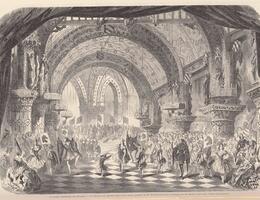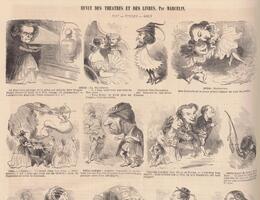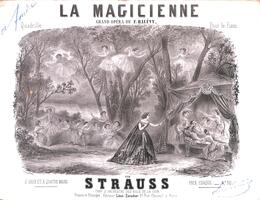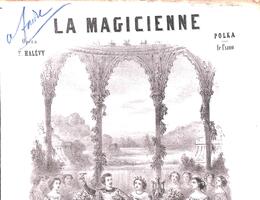La Magicienne
![Le Monde illustré, 1858/03/27 [La Magicienne]](/sites/default/files/styles/440x580/public/2024-03/mi_1858_03_27_magicienne_c_gallica.jpg?itok=_mZb0pnt)
Performed at the Paris Opéra on 17 March 1858, Halévy’s last grand opera revisits the myth of the “Mère-Lusine”, a fairy who sometimes turns into a monstrous creature, half woman, half fish. In the libretto by Jules de Saint-Georges, the transformation is spiritual rather than physical: the pact she makes with the devil gives Mélusine magical powers which allow her to come between Blanche and René and seduce the latter. However, the love shared by the young couple causes the fairy to feel genuine remorse and she repents. Set during the Crusades, the work combines historical elements characteristic of the genre with a new supernatural dimension lacking from the grand opera of the July Monarchy. In the initial acts, the fantastic aspects are full of magic while, in Act 5, the action is dominated by Christian myth, culminating in Mélusine’s conversion. In this, La Magicienne forms a striking contrast with the grand operas composed previously by Halévy and in particular with the anticlerical leanings of La Juive (1835) – a contrast which has been interpreted as an expression of the Second Empire’s desire to move closer to the Church. Stylistically, the composer uses elements found in his other grand operas, in particular the utilisation of reminiscences (Mélusine’s romance theme reappears throughout the work) and the scoring of choral and orchestral masses, but the concentration of strophic numbers and the harmonic and melodic simplicity bring the work closer to the spirit of opéra comique.




